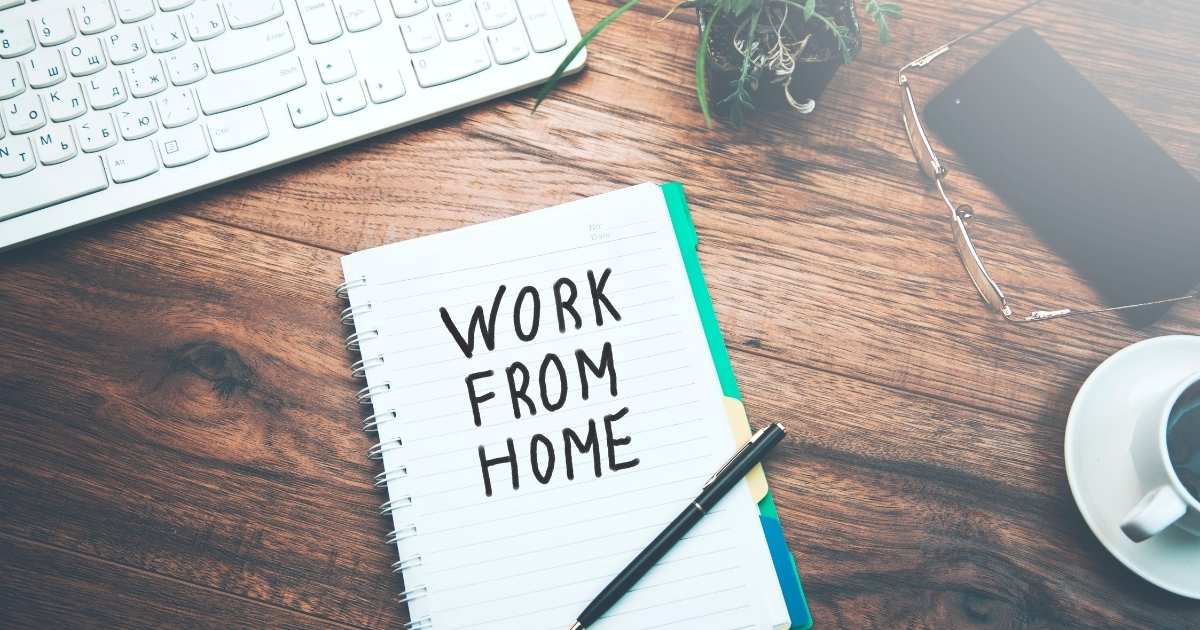Cairns tax agent says – “Know your allowable deductions”
Love it or hate it, many of us have been working from home during COVID-19, either voluntarily or as a business requirement. In fact, over 40% of employed Australians worked from home on a regular basis in the first half of August 2021 (data from Australian Bureau of Statistics). Prior to COVID-19, the rate of employed people working from home was increasing by approximately 1 percent every two years. Recent stats indicate that has increased 8.4 percent to 40.6.
Post pandemic working trends have been forecasted by many reputable workplace analytics agencies worldwide. As Global Workplace Analytics president, Kate Lister commented in a recent article;
We forecast that 25-30% of the workforce will be working-from-home one or more days a week after the pandemic.
Given that productivity and employee satisfactions surveys are forecasting that over 80% of employees would prefer to work from home for one or more days each week, it’s worthwhile researching the tax benefits of working from home.
If you are interested in the ‘accidental experiment’ conducted by the federal government in relation to mandatory work from home requirements, here’s an interesting research paper from the Australian Productivity Commission.
Let’s have a brief look at ATO supports for those working from home.
Claiming work from home expenses as an employee
As an employee, you must keep records to prove all expenses claimed. You can’t make a claim on those expenses if:
- Your employer already supplies you with those items.
- You have received some form of reimbursement for those items.
If you purchase items that you do receive an allowance for from your employer, you can claim a deduction on that expense, however you must include the allowance as income in your tax return.
In addition to the above, you can claim running expenses such as:
- Electricity specific to the area in which you are performing your work from home duties.
- Cleaning of that specific area.
- Internet / phone expenses.
- Related home office equipment such as computers, printers, phones, furniture.
- Office consumables such as paper and ink.
Generally, you cannot claim expenses such as mortgage, rent and insurances under these work from home guidelines. The good news here is that you will still be eligible to claim the capital gains main residence exemption should you decide to sell your home.
Claiming work from home expenses as a Cairns home-based business
In contrast to deductions as an employee, you may be eligible to claim for the following as a home-base business:
- Occupancy expenses eg rent, mortgage, rates, building insurance, land taxes.
- Internet and phone.
- Electricity.
- Cleaning.
- Furniture and furnishings.
- Plant and equipment devaluing.
- Motor vehicle business travel expenses.
Here’s a great PDF explaining home-based business deductions from the ATO.
Under this category, there is a temporary shortcut method for claiming tax deductions. Until 30th June 2022, you may be able to claim an all-inclusive 80c per hour for a limited time. You may also be eligible for immediate deduction or accelerated depreciation rates.
Be mindful that should you decide to sell your home, there may be capital gains tax implications. You may also need to apportion some of your expenses based on the floor area and period used.
For further information about allowable deductions, check out the ATO employees working from home page or speak with your local Cairns tax accountant Anthony Adcock for up to date, expert taxation advice.
About the Author
Anthony Adcock is a Fellow of CPA Australia and an experienced Cairns tax accountant who has worked with small businesses for over 25 years in assisting them manage their audit risk, guiding them successfully through difficult audits and helping them meet all their compliance obligations with the ATO.
This advice is general in nature and has been prepared without taking into account your particular financial circumstances, needs and objectives. Before making any decision, you should assess your own circumstances and seek professional advice from your financial and/or taxation advisor.
“Liability limited by a scheme approved under Professional Standards Legislation.”





